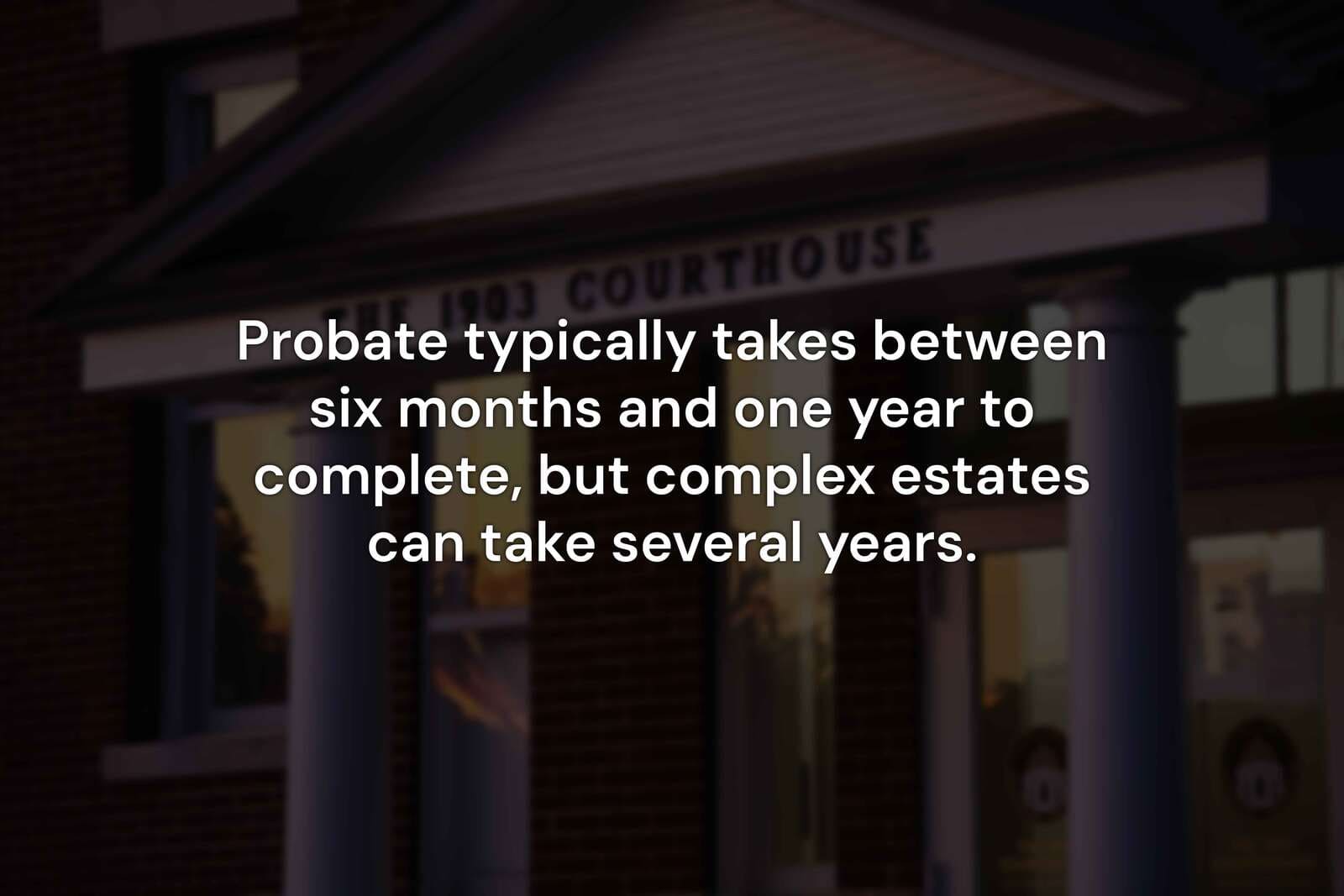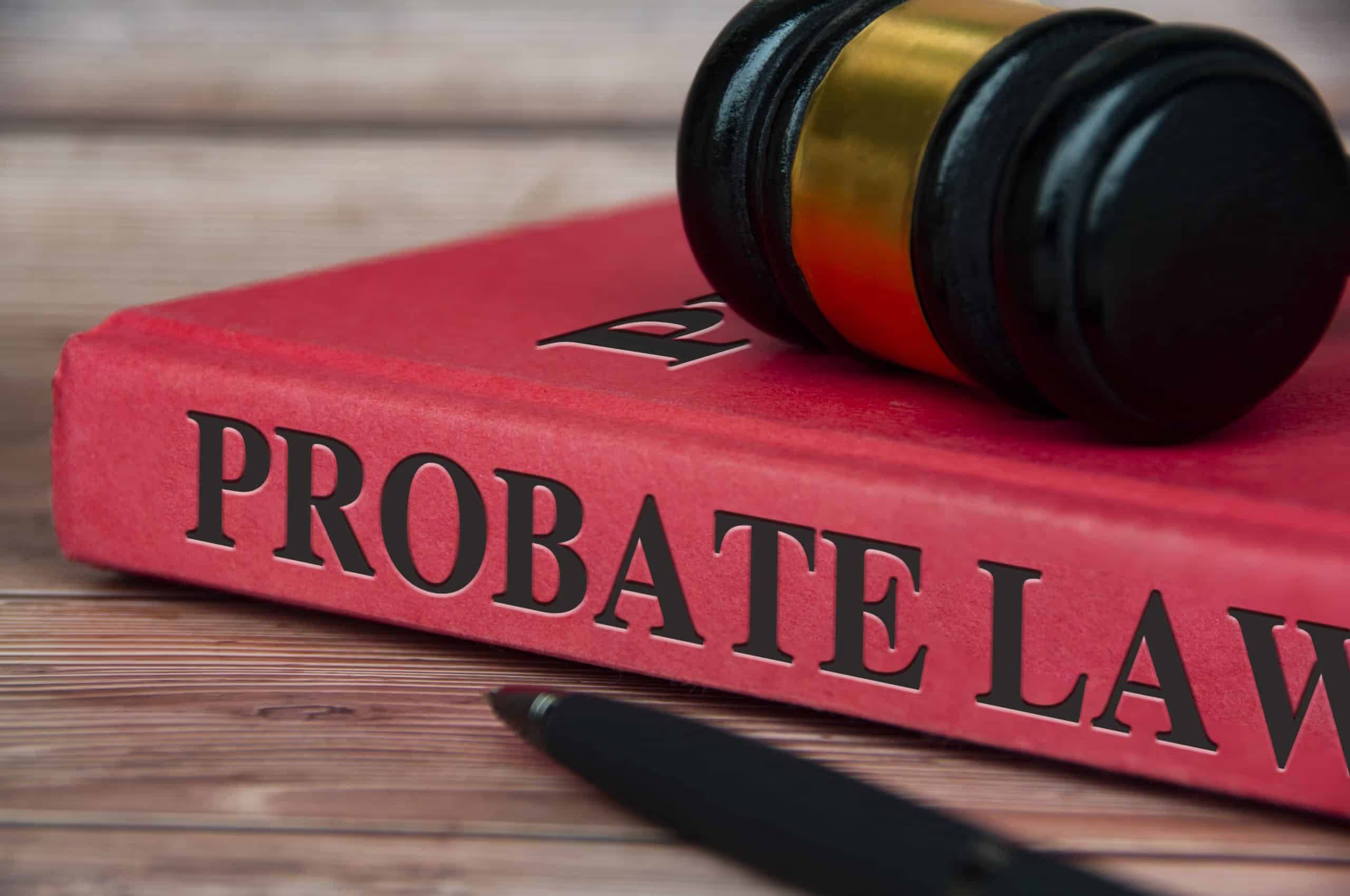Probate typically takes between six months and one year to complete, but complex estates can take several years. The exact timeline depends on state laws, the size of the estate, the number of beneficiaries, and whether any disputes arise.

Factors That Affect the Probate Timeline
Several key factors can extend or shorten the process:
- Estate Complexity: Estates with multiple properties, business interests, or international assets take longer to settle.
- Debt Resolution: Paying off creditors can add months to the process.
- Disputes: Will contests or disagreements among beneficiaries can cause lengthy delays.
- Court Backlogs: Some jurisdictions have heavy caseloads, which can slow down hearings and approvals.
Typical Steps in the Probate Process
- Filing the Will: The executor files the will with the probate court to open the case.
- Notifying Heirs and Creditors: Beneficiaries and creditors are informed of the proceedings.
- Inventorying Assets: The executor must identify, value, and safeguard all estate assets.
- Paying Debts and Taxes: Debts and any applicable taxes are paid before distributions.
- Distributing Assets: Remaining property is transferred to beneficiaries according to the will or state law.
How to Speed Up Probate
While some delays are unavoidable, these steps can help reduce the timeline:
- Keep all important documents organized.
- Ensure the will is valid and clearly written.
- Pay off debts before death if possible.
- Use tools like living trusts to bypass probate for certain assets.
Why Probate Takes Longer for Some Estates
Large estates with high-value assets or complicated ownership structures often require professional appraisals, multiple legal filings, and detailed accounting, all of which add time. Disputes among beneficiaries can cause even more delays, especially if litigation becomes necessary.
The Executor’s Role in Probate Timing
An efficient executor who promptly files paperwork, communicates clearly, and follows court requirements can significantly shorten the process. Delays often occur when executors are inexperienced or fail to meet deadlines.

Why Legal Guidance Matters
Working with an experienced probate attorney can help avoid mistakes, anticipate challenges, and streamline the process from start to finish.

Related Probate Topics to Explore
Will Meaning and Legal Importance
A will is a written legal document that directs how assets are distributed and can name guardians for minor children.
What is a Power of Attorney?
A POA allows you to appoint someone to handle financial, legal, or medical matters on your behalf during your lifetime.
Can You Avoid Probate?
Estate planning tools like living trusts and transfer-on-death designations can help keep assets out of probate.
What Happens During Probate?
The probate process includes court oversight to validate the will, settle debts, and distribute assets.



























